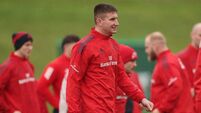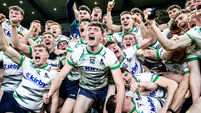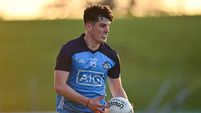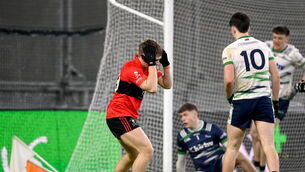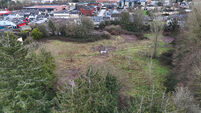GAA in The Troubles: ‘Results were smuggled into jail. You would hear a cheer if their club won a big game’
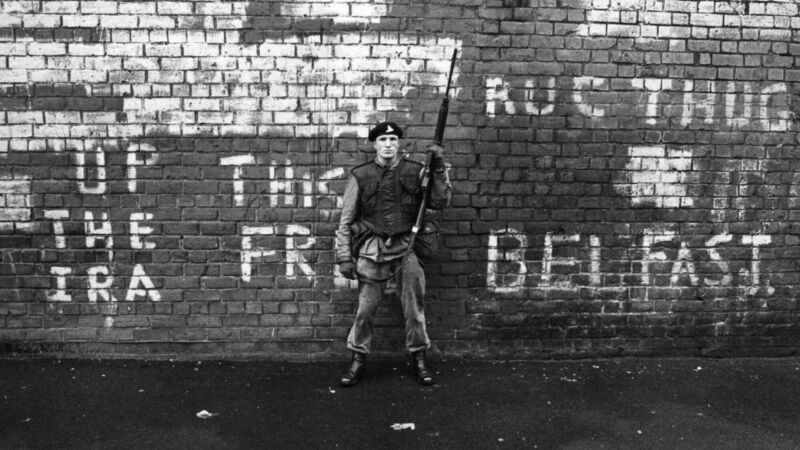
A British soldier on patrol in Belfast in March 1971. Picture: John Minihan/Evening Standard/Getty Images
For those signing up to the Provisional wing of the Irish Republican Army, the choice was spelled out to them before they took their oath.
The fluffy stuff, the romance and all that, they got from monuments and old songs and stories about the glory of Old Ireland. The Belfast Brigade would dispense with niceties.






